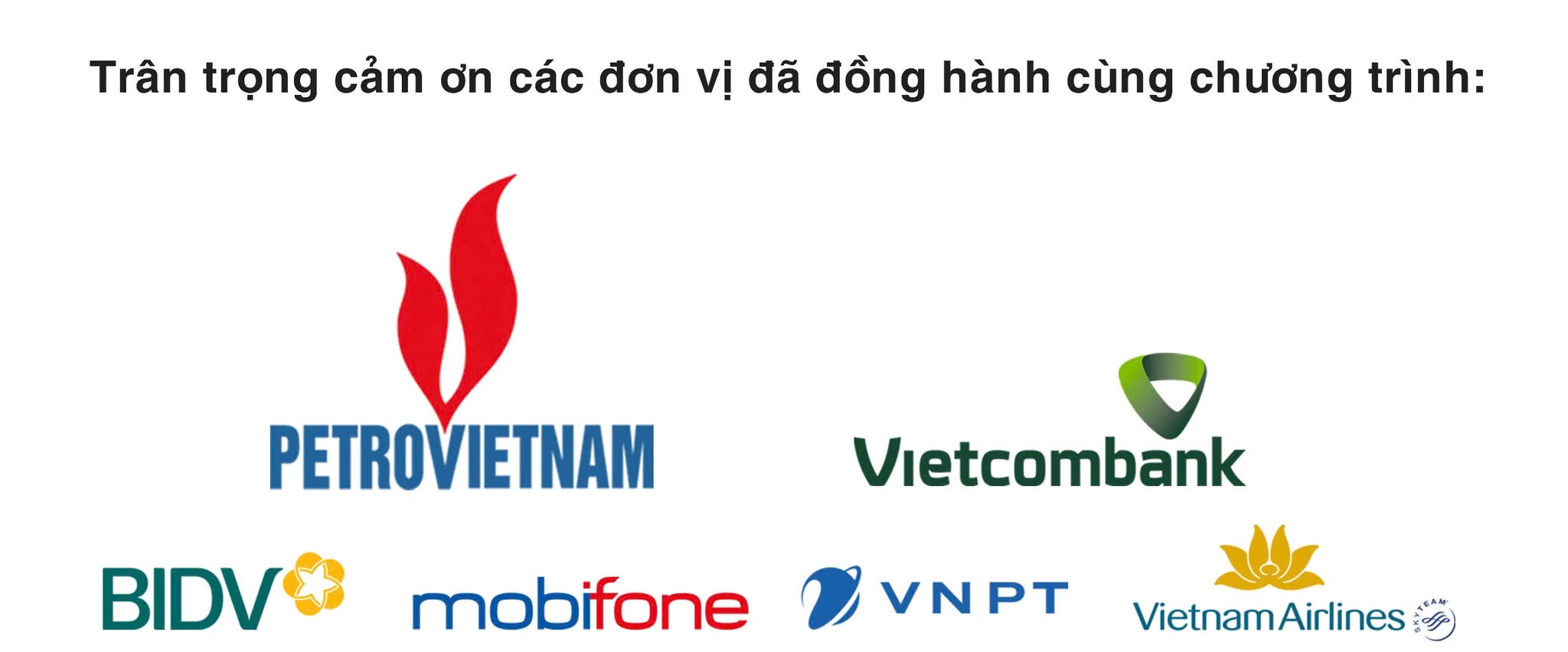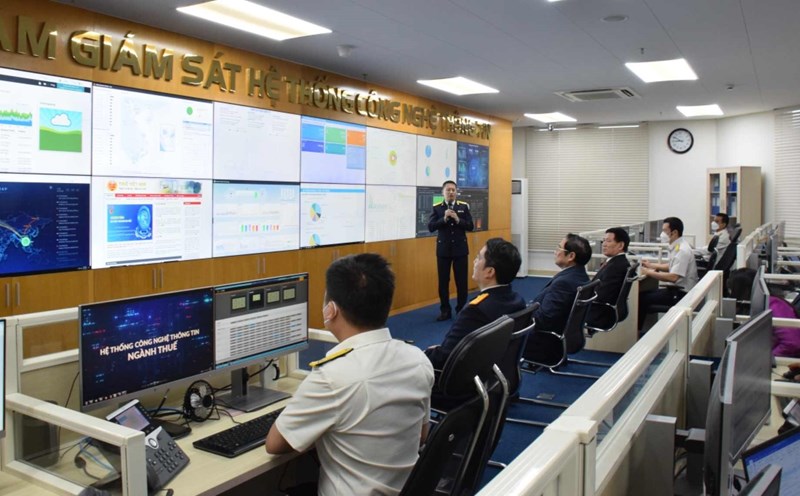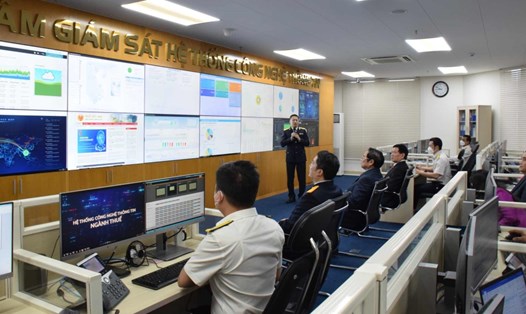Lao Dong Newspaper quoted the speech of Dr. Le Thi Thuy Van - Deputy Director - Institute of Strategy and Financial Policy - Ministry of Finance at the "Seminar on Tax and a healthy financial system for sustainable development" held on the afternoon of December 18, 2024.
State budget collection policy to support economic growth
In the context of the world economy facing many difficulties, risks, and instabilities, negatively affecting sustainable growth, Vietnam's economy has had positive growth steps, always being among the group with the highest growth rates in the world, affirming that the Government's management and operation policies have been effective. GDP in the first 9 months of 2024 increased by 6.82%, much higher than in 2023 (at 4.24%), aiming for a growth target of 6.5-7% for the whole year.
In addition, core inflation is well controlled, contributing to ensuring macroeconomic stability, creating a foundation for sustainable economic growth, strengthening the confidence of people, businesses and foreign investors in the domestic currency and business environment in Vietnam. In the first 11 months of 2024, the average inflation increased by 3.69%, still leaving room for the annual inflation target of 4-4.5% according to Resolution No. 103/2023/QH15 of the National Assembly.
To achieve the above positive results, fiscal policy has played a supporting role in sustainable economic growth and development. In the recent period, the Government has implemented an expansionary fiscal policy to help the economy overcome difficulties, recover and gradually regain growth momentum.
Despite implementing large-scale tax exemption and reduction solutions, total state budget revenue still achieved positive results, ensuring resources for socio-economic stabilization tasks, showing that the issued fiscal policies have truly come into life, actively supporting people, businesses and the entire economy, while contributing to nurturing sustainable revenue sources.
Some difficulties and challenges in the new context
World economic and political instability strongly affects economic development and sustainable state budget revenue.
In the recent period, the world economy continued to fluctuate in a complex, unstable and unpredictable manner, creating considerable pressure on the domestic economy. Risks related to armed conflicts have increased sharply with ongoing conflicts in the Middle East, attacks on ships in the Red Sea, a marked decline in security in sub-Saharan Africa and ongoing conflicts in Ukraine.
If conflict in the Middle East escalates, oil supplies could be significantly disrupted and commodity prices could spike, potentially undermining efforts to return inflation to target globally. The Russia-Ukraine conflict continues to pose risks to commodity markets and regional security. The combination of multiple armed conflicts and their knock-on effects risks further destabilizing the geopolitical environment, dampening investment, dampening consumer and business sentiment, and increasing financial volatility.
Global trade growth is recovering but there are still many uncertainties. Vietnam may face the risk of being considered a transit point for Chinese goods to the United States and subject to separate tariffs.
Currently, Vietnam is the 8th largest trading partner of the United States and the country with the 3rd largest trade surplus with the United States, after China and Mexico; the annual trade deficit of the United States with Vietnam has increased more than 2.5 times from 39.5 billion USD in 2018 to nearly 105 billion USD in 2023. It is expected that Vietnam's trade will be significantly affected by the deficit reduction policy, aiming at trade balance of President Donald Trump's administration.
The strong development of the global digital economy as well as the formation of technology alliances and the trend of international cooperation to ensure safety for artificial intelligence also pose many challenges for the Vietnamese economy.
At the Disruptive Technology Protection Network Summit in Washington in April 2024, the United States, South Korea and Japan agreed to strengthen cooperation in export control and protection of technologies that have significant economic and national security impacts such as semiconductor chips, AI and biotechnology; the United States and the United Kingdom signed a new agreement on AI development and security; Germany, France and Italy also reached an agreement on AI management regulations on November 19, 2023...
In addition, like many other developing countries, Vietnam is at risk of falling behind economically due to lack of technological autonomy and falling into the middle-income trap. The World Bank (7/2024) warned that 108 countries including China, India and Vietnam are at risk of being stuck at the middle-income level.
On current trends, it will take China another 10 years and India 75 years to reach a per capita income of 25% of the US level. In addition, many middle-income countries still rely on growth strategies that rely heavily on capital, labor, and carbon-intensive economies, have not yet mastered advanced technology, and face many challenges from population aging and climate change.
These countries contribute 40% of global GDP and are the source of more than 60% of the world's annual carbon emissions. The World Bank also provides successful lessons for high-income development in Korea, Poland and Chile with lessons on developing investment in new technology, innovation-based growth such as Korea's 3i strategy in investing, absorbing technology and developing its own technology.
The domestic economy still faces many difficulties and challenges.
Domestically, the economic situation still faces many difficulties and challenges. Labor productivity shows signs of decline, with the labor productivity growth rates in 2021-2023 being 4.71%, 4.8%, and 3.65%, respectively, lower than the set target of 6.5%, widening the gap with other countries in the region.
In 2024, this target is estimated to reach 5.56%, although it is higher than previous years, it is still low. Consumer demand tends to grow slowly and unsteadily, in 2023 it will only increase by 3.52%, much lower than the increase of 7.18% in 2022.
Total social investment capital in the first 9 months of 2024, although growing at a higher rate than the same period last year (up 6.8%), the improvement was only evident in the FDI sector; the progress of disbursement of public investment capital was low, reaching 60.4% of the plan assigned by the Prime Minister in the first 11 months of 2024.
In addition, Vietnam is a country with a highly open economy, with the total import-export turnover/GDP ratio in 2023 reaching about 160%, so it is more vulnerable to external fluctuations. Along with that, natural disasters and climate change continue to have a major impact on the implementation of socio-economic development tasks.
Although the business situation has improved, it still faces many difficulties.
The total registered capital added to the economy in the first 11 months of 2024 was nearly VND 2,912.1 trillion, down 7.5% over the same period in 2023. In the first 11 months of 2024, the number of enterprises withdrawing from the market was more than 173.2 thousand enterprises, up 9.1% over the same period, an average of 15.7 thousand enterprises withdrawing from the market per month.
In addition, Vietnam is among the top 5 countries most vulnerable to climate change and is one of the countries most affected by natural disasters in the world, with many different types of natural disasters such as storms, tropical depressions, floods, droughts, saltwater intrusion, landslides and forest fires.
Policy orientation to ensure sustainable budget revenue
In the context that we are facing many socio-economic difficulties and risks, one of the challenges for Vietnam is to mobilize sustainable financial resources to support rapid and inclusive development, in which state budget revenue still plays an important role.
To ensure sustainable budget revenue in the coming period, fiscal policy orientations need to focus on the following goals:
Firstly, effectively implement new laws passed by the National Assembly at the 8th Session and effective from 2025, including the Law on Value Added Tax and the Law on amending and supplementing a number of articles of the Law on Securities, the Law on Accounting, the Law on Independent Auditing, the Law on State Budget, the Law on Management and Use of Public Assets, the Law on Tax Administration, the Law on Personal Income Tax, the Law on National Reserves, and the Law on Handling of Administrative Violations to resolve urgent problems, contributing to removing difficulties in production and business activities.
In addition, continue to research, review and perfect tax laws in line with the goals and orientations of socio-economic development and the Financial Strategy to 2030, ensuring transparency and fairness, aiming to expand the revenue base following the general trend of countries around the world to increase revenue sources; at the same time, review tax incentive policies, focusing on tax incentives on a number of key sectors to promote new growth drivers, especially digital transformation, green transformation and new sectors and fields, high technology.
Second, improve the efficiency of tax management for tax collection agencies, prevent fraud, tax evasion, tax losses and arrears, and implement electronic tax management. Strengthen administrative procedure reform in the tax and customs sector, continue to promote the application of information technology and electronic invoices, and provide good support for taxpayers; at the same time, proactively monitor the international and domestic situation to have appropriate, timely, and focused policies on finance and the State budget.
In addition, it is necessary to develop policy mechanisms and improve the investment environment to attract foreign investors in the context of applying global minimum tax. This is a measure that can promote growth, solve labor problems, increase state budget revenue, and create momentum for sustainable development.
Third, continue to review legal documents, remove bottlenecks to clear bottlenecks in public investment disbursement. Focus on implementing public investment disbursement, especially for key national projects and works with large spillover effects such as highways, inter-regional and coastal roads and national target programs. Prioritize resources for science and technology development, build mechanisms, policies and breakthrough solutions for key industries, high-tech fields (chip technology, semiconductor technology, AI, etc.) and develop high-quality human resources to enhance the competitiveness of the economy.
The speed of technological innovation globally will have a profound impact on industries, sectors, and labor markets and is becoming a challenge for countries with cheap labor like Vietnam (with its main comparative advantage based on cheap and abundant labor).
Therefore, in addition to investing in science and technology development, Vietnam needs to have breakthrough and favorable policy mechanisms and solutions to develop science and technology, especially in strategic fields and develop high-quality human resources; contributing to creating competitive advantages for Vietnam in the process of sustainable economic development and promoting innovation.
Fourth, vigorously apply science and technology, carry out national digital transformation and develop the digital economy, as a driving force for economic growth and nurture new sources of revenue from this field. In 2024, the World Intellectual Property Organization ranked Vietnam's Innovation Index at 44th, up 2 places compared to 2023, continuously maintaining in the top 50 countries since 2018; The global cybersecurity index increased 8 places, ranking 17th out of 194 countries.
Vietnam's national digital transformation index from 2020 to 2022 increased by 48%, from 0.48 to 0.71; in 2023, this index will reach about 0.75. Google's report assessed that Vietnam's digital economic growth rate is the fastest in Southeast Asia for two consecutive years (2022 reaching 28%, 2023 reaching 19%), 3.5 times higher than the GDP growth rate. It is estimated that the proportion of the digital economy in Vietnam's GDP in 2023 will reach 16.5%. Vietnam's digital economic growth rate is about 20%/year, 3 times higher than the GDP growth rate.














